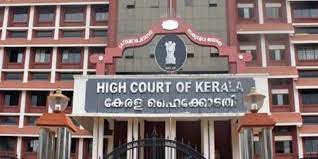A division bench of the Kerala high court on Monday declined to stay an order by a single judge bench of the court directing the Union government to the allow the administration of the second dose of Covishield vaccine after a four-week gap to people who wanted it.
Declining an interim stay, bench of chief justice S Manikumar and justice Shaji P Chaly posted the plea for further hearing on Thursday.
The Centre moved the court questioning the order, on September 6, saying it was not in tune with the vaccine policy of the government. The counsel for the government, assistant solicitor general P Vijayakumar, contended that the verdict will affect the ongoing vaccination drive and create more confusion.
Last month, justice PB Suresh Kumar ordered the Union government to allow the second dose of vaccine after a gap of four weeks for those who wanted to take it early, and directed it to make necessary changes in the CoWin portal to facilitate this. The verdict came on a petition filed by the Kitex Group, a Kochi-based apparel making unit, last month questioning 84-day gap between two doses of vaccine.
The gap between two doses of Covishield, the Indian version of the AstraZeneca/Oxford vaccine, was increased from 4-6 weeks in January to 12-16 weeks in May. While the government cited scientific evidence for this, it was widely believed that the gap was also increased to account for a shortage of vaccines. The gap between two doses of the other vaccine widely administered in India, Covaxin, has stayed constant at 4-6 weeks.
People who need the vaccine to travel for higher studies, however, are allowed to take the jab after four weeks on furnishing visa documents.
The single Judge on September 3 had said that if the central and state governments can permit persons travelling abroad to choose between early and better protection from Covid-19, there is no reason why the same privilege cannot be extended to those here who want early protection in connection with their employment or education.On this, the Centre, in its appeal, has said it had offered relaxations in favour of certain persons who were a separate class by themselves and for valid reasons and Kitex cannot claim parity with them.
However, in its September 6 order, the high court asked the Union government to allow the administration of the second dose of the Covishield vaccine after a gap of four weeks for those wishing to take the jab early, and willing to pay for it. It also asked the Union government to make necessary changes on the CoWin portal.
On Monday, P Vijayakumarsaid any changes in the vaccine policy can be carried out on necessary approvals by a scientific or medical team, and needs clinical trials, and will delay the entire process.
But experts have disputed this. Last week, NK Arora, the head of the National Technical Advisory Group on Immunisation (NTAGI) said having a different dosing regime for different people is not possible. He also said that scientifically, evidence supports a longe gap.
“Scientifically we are very firm on our decision at the moment. But of course, it is a dynamic situation, and if in future there is data to support benefits of reducing the gap, then our experts will look at it. The decision will be driven purely by science,” he told HT on Wednesday.
Earlier, on August 27,the Union government opposed the plea saying that 84-day gap between two doses of vaccine was related to efficacy and it was nothing to do with the shortage of doses. It also cited the study of the national expert group on vaccination administration for Covid-19 — which said what — to support its point.
Kitex, in its plea, contended that it had vaccinated around 5,000 of its workforce with the first dose but unable to administer the second dose due to the prevailing restrictions. It sought judicial intervention to speed up the process in view of high cases in the state and cited recent relaxations allowed by the state and central governments for students, and others.
Earlier on September 6, the company counsel had said that if the shorter period was not allowed the vaccines it had bought would get wasted.
In United Kingdom, the gap between two doses of Astra Zeneca (called Covisheild in India) is 12 weeks. Recommended gap for two doses of Pfizer in United states is 21 days. “Gap is good as it gives extended immunity and many studies have proven it. I feel at least six-week gap is necessary for efficacy,” said public health expert Dr Padmanabha Shenoy.







